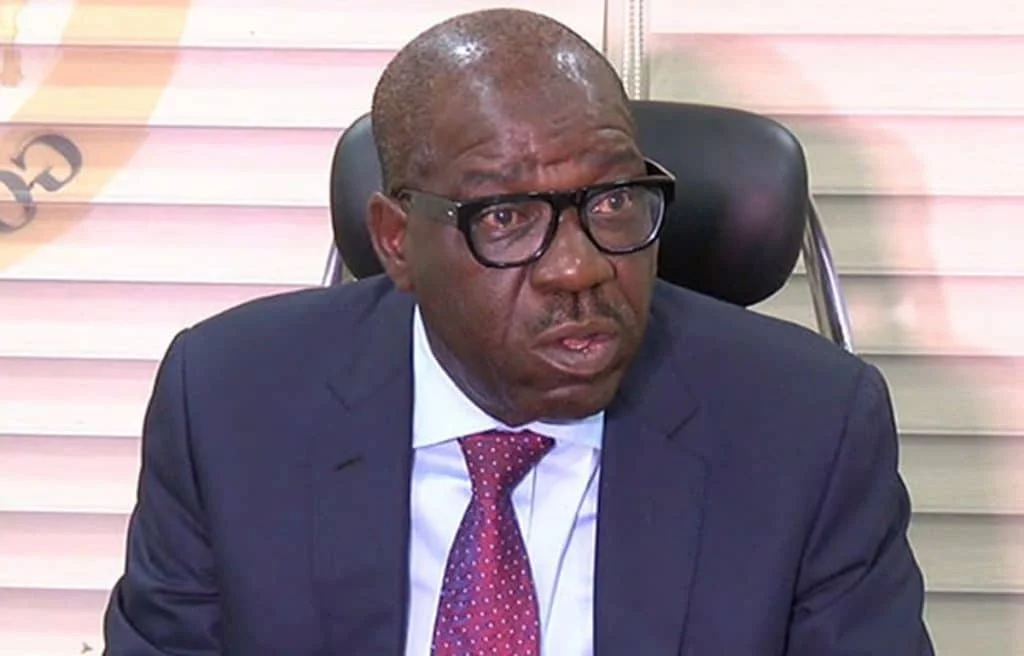News
How UNICEF’s Initiative Changes Narrative Of Access To Healthcare Services In Bauchi

The United Nations Children’s Fund (UNICEF), through its Fathers for Good Health (F4GH) initiative has been making a whole lot of impact and improving the level of people’s access to healthcare services in Bauchi state.
This initiative was developed by UNICEF and funded by the Canadian Government in order to encourage men to support and mobilise their women for clinic visits, routine immunization, antenatal care and better hygiene practices within their communities.
Speaking in an interview with newsmen on Saturday while commemorating Fathers’ Day, John Eki, the Social Behaviour Change Specialist, UNICEF Bauchi Field Office, explained that the initiative was specially introduced to ensure that children that have not received any form of vaccine before were reached and vaccinated in Bauchi state.
In doing this, he said UNICEF in collaboration with the state’s Primary Healthcare Development Board did a rapid assessment where they went to two Local Government Areas, Misau and Ningi.
“We went to find out by ourselves the reason behind the parents not allowing their children to be vaccinated.
READ ALSO: Polio: UNICEF Engages Traditional Rulers To Ensure Vaccine Compliance
“It was quite interesting to see some of the underlying reasons why some parents were not vaccinating their children but increasingly, many of the respondents especially, mothers pointed out that the power to give consent to vaccinate a child rests with the fathers.
“They told us that if we want their children to be vaccinated, then we need to work with the men to be able to give them permission to vaccinate their children and that’s exactly what we did and we recorded huge success in this regard,” he said.
According to him, the group had been able to reach a total number of 113 wards, mobilized 9,252 communities as well as 109,444 children to be immunized with different routine immunization antigens in seven LGAs of Bauchi state.
The UNICEF specialist further explained that F4GH has a total number of 1,130 members with more volunteers showing interest in joining the group.
“What this means is that in every LGA we work, there are ten men in each ward meeting the fathers and convincing them to bring their children to health facilities for vaccination.
READ ALSO:Polio: UNICEF Supports Bauchi Govt. With Over 2.5 Million Vaccines
“We are mainstreaming nutrition, education, and child protection activities into the work the F4GH are doing now.
“This will enable them to address not only the issue of non-compliance with vaccine uptake but all the related issues affecting children and mothers,” Eki said.
While commending the group during a field trip of journalists organized by UNICEF to Misau LGA, Turaki Goje, a father who had once rejected vaccination owing to the fact that he grew up without receiving any form of immunization, admitted that he was ignorant and negligent.
“Members of the Father for Good Health support team visited my house at different times but I chased them away each time until one day I decided to listen to them to receive their messages.
“After listening to them, I was convinced about the message and I immediately allowed all my children that are within the immunization ages to receive the vaccination. Today, I have healthy children and grandchildren in my family.
READ ALSO: Be More Actively Involved In Child-Nutrition Programmes – UNICEF Urges Traditional Rulers
“In fact, I later invited them and took them to my village where they enlightened the people there and they all accepted it especially, the women. We are now accepting any form of vaccination they bring to us.
“Another reason why I rejected any vaccination before was because we used to think that there was some kind of hidden agenda behind it because we thought these vaccination exercises only took place in the Northern part of the country,” he said.
One of the members of the group, Nura Aliyu, said before the coming of the initiative, there was a lot of resistance to polio immunization, low attendance of antenatal sessions by pregnant women and home deliveries were on the high side which sometimes resulted in health complications.
“Thanks to the Fathers for Good health Initiative, people now recognize the importance of going to the hospital, particularly pregnant women, even our malnourished children have recovered.
”Before now, there was a lot of resistance to immunization, most households were against immunizing their newborns and many of the pregnant women were not educated on attending antenatal and giving birth in a health facility.”
Similarly, another member of the group, Ibrahim Maina, called on the state government to help provide the group with the necessary mobility especially, motorcycles in order to effectively reach some of the hard to reach areas for awareness campaigns in no distant time.
News
Ex-Edo Gov Obaseki Reacts As His Cousin Is Beaten, Stripped

The immediate past governor of Edo State, Godwin Obaseki, has reacted to the attack on Don Pedro Obaseki, the Chief Executive Officer of Osamudia Farms.
Don Pedro Obaseki, a cousin to the immediate past governor was attacked at Uwa Primary School where he went to play football.
In a viral video, Pedro Obaseki is seen kneeling at the Oba of Benin Palace gate, before he was dragged into the palace where he was asked to crawl before some chief walked up to the scene and rescued him.
Reacting, the ex-Edo governor described the act as a “grave violation of fundamental human rights and a reckless disregard for the rule of law.”
READ ALSO: Obaseki Beaten, Stripped In Edo
Obaseki, said: “I call on security agencies to immediately investigate this matter thoroughly and transparently, identify those responsible for this barbaric act and ensure they are held accountable in accordance with the law.
“A situation where thugs and non-state actors appear to freely take the law into their own hands on behalf of high-profile individuals and those in positions of authority can only result in one outcome, a degeneration into a state of anarchy, which will do no one no good.”
He further charged, “I urge human rights organizations, civil society groups, and all well-meaning Nigerians to lend their voices and speak out firmly against this injustice and gross violation of human rights.”
News
New Tax Laws: Suspend January 2026 Implementation — Senator Ndume Tells Tinubu

Former Senate Leader, Ali Ndume has appealed to President Bola Ahmed Tinubu to suspend the January 1, 2026, implementation of the country’s new tax laws amid growing controversy.
The federal lawmaker made the appeal in a statement he issued on Wednesday in Abuja.
This comes as the Nigerian Bar Association demanded the suspension of the implementation.
Recall that a member of the House of Representatives, Abdussamad Dasuki, had last week called the Parliament’s attention to alleged alteration to the tax laws.
READ ALSO:FIRS Confirms NIN As Tax ID
Chairman of the Presidential Fiscal Policy and Tax Reforms Committee, Taiwo Oyedele, in an interview on Arise Television on Wednesday, called for calm over claims of alterations in tax laws and urged Nigerians to allow lawmakers to complete their investigation before drawing conclusions.
Speaking on the ongoing controversy about the tax laws, Ndume noted that proceeding with the implementation without getting to the root of the alleged forgery will create a legitimacy challenge for the tax laws.
His statement read, “With the controversy surrounding it, the President should constitute a team to verify the veracity of the claim and act accordingly.
“As the responsive leader that he has always been, he should look at it to find out if the copy that was signed and the claim of alterations are genuine so that he will do the needful to bring the controversy to rest.
READ ALSO:US Threatens To Sanction Countries That Vote For Shipping Carbon Tax
“If not, the controversy will continue.” That is to say, the tax law will not be implemented, because you can’t build on nothing.
“So, Mr. President should suspend the implementation until the issues are resolved because so many civil society organizations, the Arewa Community, and the Nigerian Bar Association are saying that he should withdraw the tax law and investigate the allegation of forgery.”
“Therefore, Mr President should get to the root of the allegation of forgery. The small committee that will be set up should look into it while the House of Representatives does its own.”
News
Tambuwal Engages Security Agencies As US Airstrikes Hit Own LG In Sokoto

Senator Aminu Waziri Tambuwal, representing Sokoto South, has called on residents of Sokoto State to remain calm following reports of United States airstrikes targeting ISIS-linked terrorists on Christmas Day.
In a statement posted on his personal X account, the former Sokoto State governor said he was aware of reports concerning the airstrikes, which marked a direct US military action in Nigeria based on intelligence about ISWAP threats, and urged citizens to remain law-abiding while authorities clarify the situation.
“I have noted the reports concerning an airstrike carried out as part of ongoing counterterrorism efforts through cooperation between the federal government of Nigeria and the United States,” Tambuwal said. “I urge our communities to remain calm and law abiding as relevant authorities clarify the circumstances surrounding the operation.”
READ ALSO:US Dept Of War Shares Video Of Air Strikes In Nigeria
Tambuwal assured constituents that he was engaging with relevant security agencies to obtain full details of the operation and to ensure that necessary things were in place to protect civilians.
“I wish to assure the people of Sokoto South that I am in active talks with relevant security authorities to obtain full details and ensure that all necessary safeguards are upheld,” he added.
The senator emphasised that counterterrorism operations were aimed strictly at criminal and terrorist elements threatening public safety, not innocent civilians who are often victims of insecurity. He stressed that the protection of civilian lives must remain central to all legitimate security actions.
He further called on community leaders, traditional institutions and residents to work closely with security agencies by sharing credible intelligence and resisting misinformation capable of causing fear or heightening tension.

 News5 days ago
News5 days agoJUST IN: Kano Lawmaker, Sarki Aliyu Daneji, Dies Hours After Colleague’s Passing

 News5 days ago
News5 days agoFULL LIST: Churches That Don’t Celebrate Christmas

 Headline3 days ago
Headline3 days agoJUST IN: US Forces Bomb Terrorists Camps In Nigeria

 News3 days ago
News3 days agoOkpebholo Slams ₦25bn Libel Suit On Edo PDP Chairman

 Headline3 days ago
Headline3 days agoUS Dept Of War Shares Video Of Air Strikes In Nigeria

 Entertainment4 days ago
Entertainment4 days agoAFCON 2025: Davido Wins $96,000 After Super Eagles Beat Tanzania

 News5 days ago
News5 days agoOPINION: The Day Friendship Died

 News5 days ago
News5 days ago7 Health Risks Of Owning A Cat

 News5 days ago
News5 days agoSheikh Gummi Sues Two Over Alleged False Facebook Publication

 Headline5 days ago
Headline5 days agoCoup: Guinea-Bissau Junta Releases Six Held Opposition Politicians






























